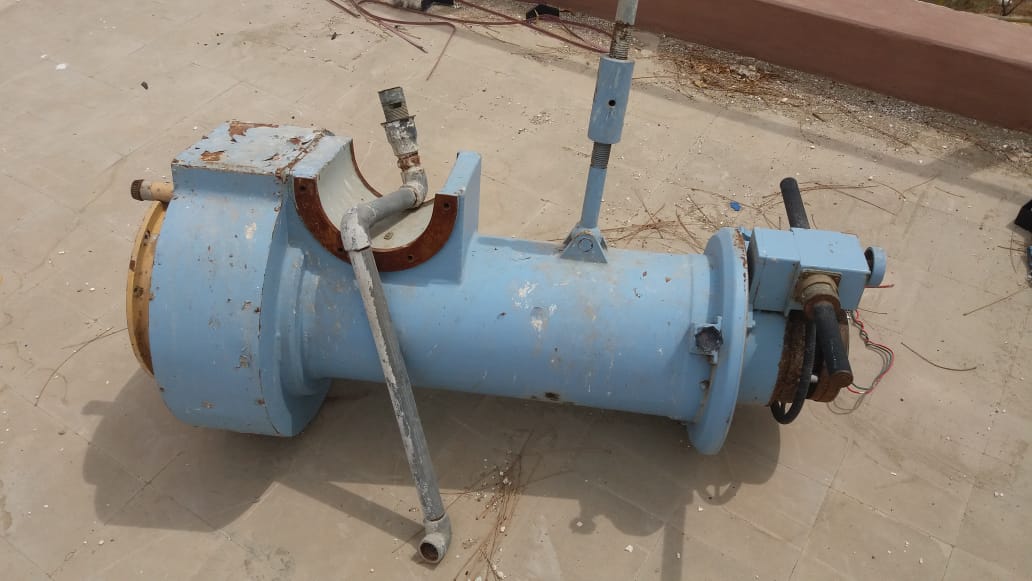
The future of planetary astrophysics has always remained relatively obscure as a discipline in universities across Pakistan. And after dashing the hopes of aspiring astronauts by shutting down Karachi University’s Institute of Space and Planetary Astrophysics (ISPA), the university administration has dumped the observatory’s unique astronomical telescope in construction waste.
Lack of research facilities and equipment continues to be a big concern among students and teachers at the university as it is, and when scientific apparatus end up in trash-and-rubble dumps, it raises serious questions on the capability and responsibility of the university’s administration.
The German-made telescope – which was once housed inside an earthquake-resistance pillar at ISPA – had been rendered useless due to lack of care and proper maintenance. Subsequently, it was dumped by the administration.
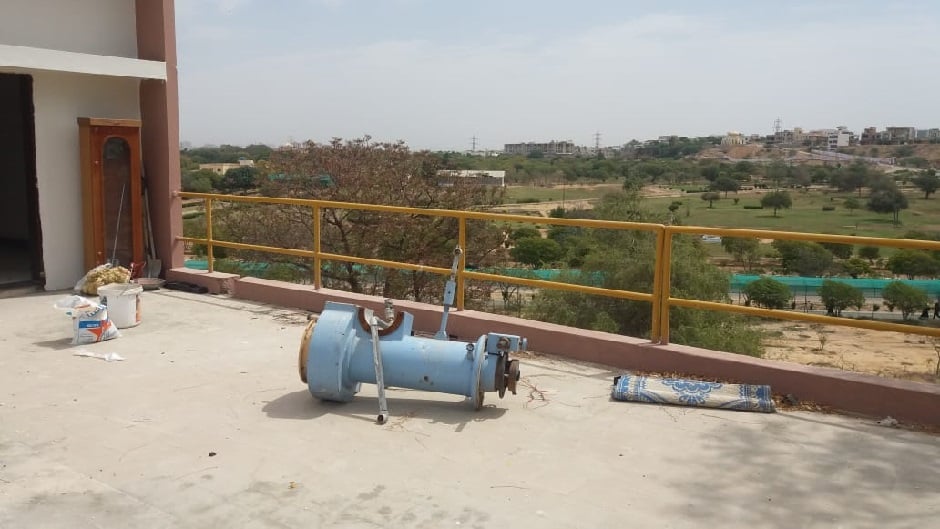 PHOTO: EXPRESS
PHOTO: EXPRESSThe move came as a surprise because the powerful refracting telescope – the only one that the university had – carried historical significance. When functional, it was capable of synchronising its movement with that of the Earth without any readjustments and was able to scan the whole sky.
The telescope was donated to the University in 1965 by the German manufacturer Carl Zeiss – a company which is famous across the globe for building some of the highest quality and most expensive telescope and camera lenses to date.
Upon a visit to the observatory building, The Express Tribune found various parts of the telescope lying in a rubble-and-garbage dump. Providing more information on the telescope, sources revealed that in the 1990s, representatives of Carl Zeiss visited the University and offered to take the telescope back to replace it with a new model. The University, however, declined the offer due to a lack of funds.
Sources at the university further revealed that as soon as construction work was initiated at the observatory building, the telescope was removed from its earthquake-resistant pillar and moved to another room within the observatory building. Later, it was disassembled and its components ended up with construction waste.
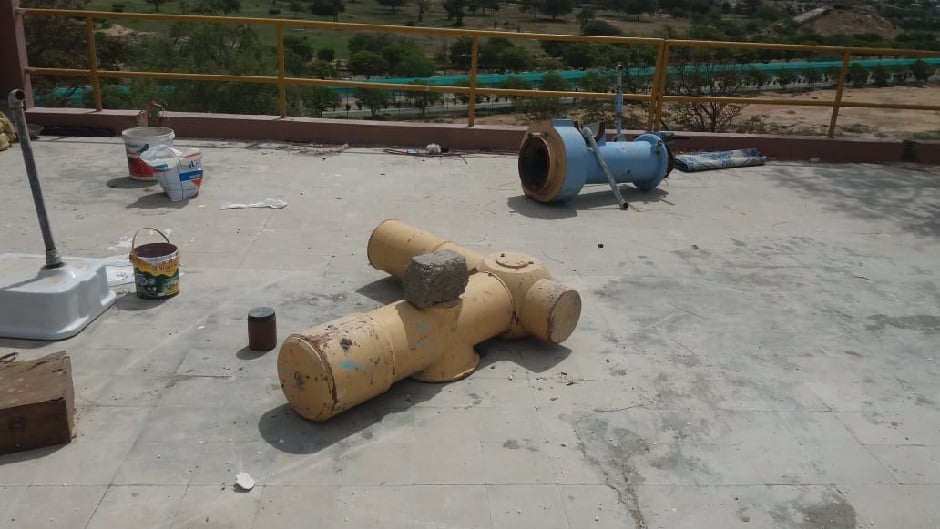 PHOTO: EXPRESS
PHOTO: EXPRESSThe action shows the university administration’s negligence and lack of awareness towards unique scientific apparatus. Per sources, even when it was installed at ISPA, the telescope was neither properly maintained nor was it ever replaced with a new one. Due to halted construction work, the observatory building even remained devoid of electricity and water supply for a long time.
When approached for a comment, Institute of Space and Planetary Astrophysics Chairman Dr Javed Iqbal informed the Express Tribune that the observatory was shut down five years ago for the purpose of renovation.
NASA pushes back giant space telescope launch to 2020
“A memorandum of Understanding (MoU) to renew and upgrade the observatory was signed between the University of Karachi and Space and Upper Atmosphere Research Commission (Suparco) on July 9, 2015,” Dr Iqbal said.
“However, Suparco had some critical legal aspects regarding the provision of the budget due to which construction and renovation was stopped and it was renewed only two months ago.”
He further said that civil work is currently underway to upgrade the observatory and once revamped, Suparco has promised to give a state-of-the-art, 16-inch lens telescope to the university.
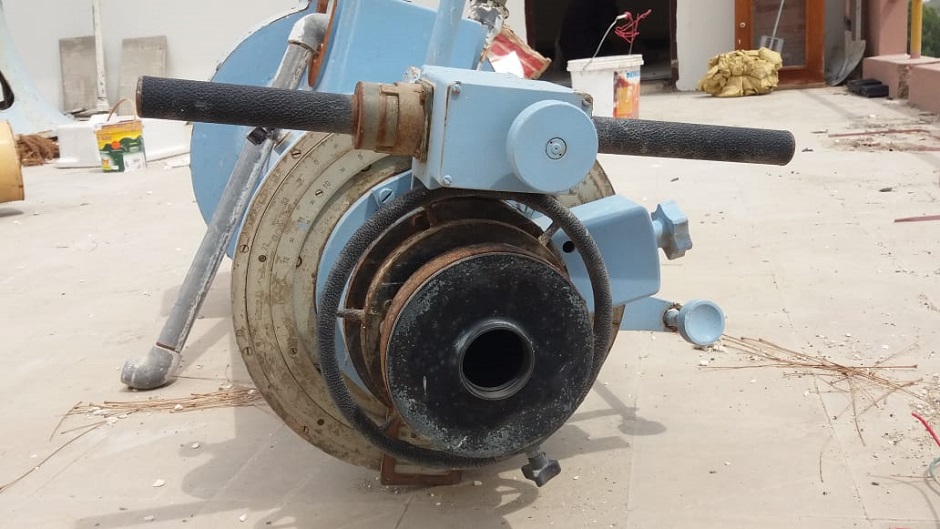 PHOTO: EXPRESS
PHOTO: EXPRESS“Hopefully, the new telescope will be installed in the newly-renovated building by May 2019, after which the observatory will be fully-functional,” Dr Javed said.
When asked about the dumping of the old telescope, Dr Javed said that it was only uninstalled after being reassured by SUPARCO in relation to the provision of a new telescope.
“The lens of the disassembled telescope is currently with one of our researchers and once the observatory is renovated, the old telescope will be reinstalled in its old place.”
Regarding the closure of ISPA, Dr Javed explained that since Pakistan has limited scope and opportunities in the field of space and planetary astrophysics, the university decided to replace the institute with the Department of Space Science and Technology.
“Students enrolled at the new department study astronomy, astrophysics, satellite communication, airspace, atmospheric science, remote sensing and geographic information system (GIS). We decided to teach them a variety of subjects so that – upon graduation – students have the option of finding work in related fields instead of ending up unemployed,” Dr Javed concluded.

1731570357-0/elon-musk-(1)1731570357-0-165x106.webp)
-(1)1717678110-0/Kendrick-(1)-(1)1717678110-0-165x106.webp)


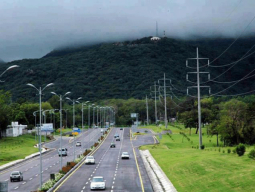











COMMENTS
Comments are moderated and generally will be posted if they are on-topic and not abusive.
For more information, please see our Comments FAQ